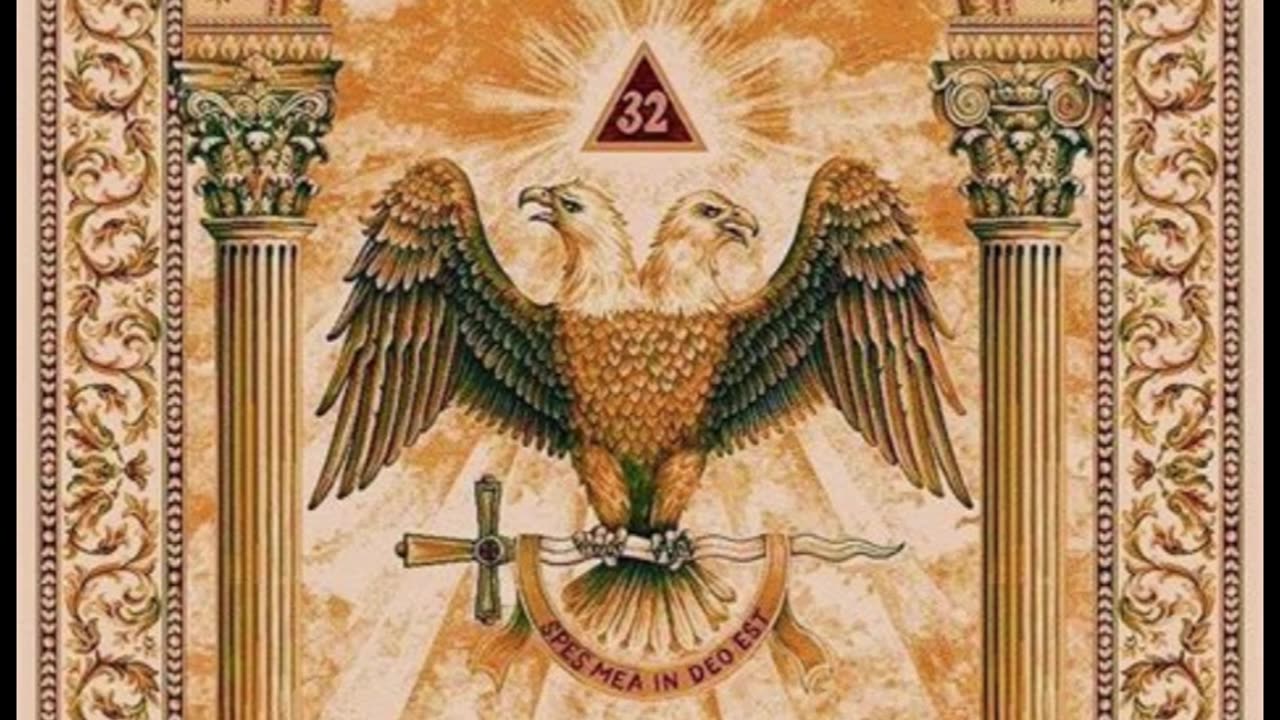Premium Only Content

Humanum Genus (On Freemasonry) April 20, 1884 by Pope Leo XIII - Part 4/4, Sections 51-58
In Part 4 of Humanum Genus, covering Sections 51-58, Pope Leo XIII concludes his encyclical with a focus on the implications for the Church and practical measures for addressing the influence of Freemasonry:
1. Masonic Penetration
Pope Leo XIII examines the extent to which Freemasonry has infiltrated various aspects of society, including religious and civil institutions. He highlights the pervasive reach of Masonic influence and its detrimental effects on public and private life.
2. The Church’s Defense
Sections 51-58 discuss the need for the Catholic Church to strengthen its defenses against Masonic encroachment. The Pope emphasizes the importance of maintaining doctrinal purity and unity among Christians to combat the divisive effects of Freemasonry.
3. Call to Clergy and Laity
The Pope addresses both clergy and laypeople, urging them to remain vigilant and informed about the dangers of Freemasonry. He encourages active resistance and educates them on recognizing and countering Masonic influence.
4. Moral and Spiritual Vigilance
Leo XIII underscores the necessity of moral and spiritual vigilance in the face of Masonic threats. He calls for a renewed commitment to Christian principles and practices as a bulwark against the challenges posed by Freemasonry.
5. Conclusion and Exhortation
In his concluding sections, the Pope reaffirms his condemnation of Freemasonry and reiterates the Church’s position on maintaining doctrinal integrity. He exhorts the faithful to uphold Christian values and resist secular and anti-clerical pressures.
6. Prayers and Devotions
The encyclical ends with a call for prayers and devotions to seek divine assistance in combating the influence of Freemasonry. Leo XIII emphasizes the power of prayer and spiritual fortitude in safeguarding the Church’s mission and the Christian faith.
This final part encapsulates Pope Leo XIII’s comprehensive critique of Freemasonry and his appeal for a unified, vigilant response from the Church and its adherents.
About the Author:
Pope Leo XIII (1810-1903), born Vincenzo Gioacchino Raffaele Luigi Pecci on March 2, 1810, in Carpineto Romano, Italy, served as the 226th Pope of the Roman Catholic Church from 1878 until his death in 1903. His papacy is noted for its significant contributions to Catholic social teaching and its engagement with contemporary social and political issues.
Leo XIII was educated at the Roman Seminary and later at the Pontifical Gregorian University, where he developed a deep understanding of philosophy, theology, and law. He was ordained a priest in 1837 and embarked on a career that saw him rise through various ecclesiastical positions, including bishop of Perugia and cardinal.
Pope Leo XIII is best known for his social encyclicals, particularly *Rerum Novarum* (1891), which addressed the conditions of the working classes and set forth the Church’s stance on social justice, labor rights, and the role of the state in economic matters. This encyclical marked the beginning of modern Catholic social teaching.
His works include substantial theological writings and commentaries on Church doctrine. Humanum Genus (1884), his encyclical against Freemasonry, reflects his concerns about the moral and philosophical challenges posed by secret societies and their influence on society and the Church.
Leo XIII worked to restore the authority of the papacy and the influence of the Church in a rapidly changing world. His papacy was marked by efforts to address modernity, secularism, and the shifting political landscape of the late 19th century.
Leo XIII was known for his opposition to modernist trends within the Church, advocating instead for traditional doctrines and practices. His encyclicals often criticized secularism and liberalism, which he viewed as threats to Christian values.
Humanum Genus specifically addresses his concerns about Freemasonry and other secret societies, which he believed were undermining Christian values and Church authority. His criticism was rooted in a broader defense of Church doctrine against what he saw as subversive influences.
Pope Leo XIII’s papacy left a lasting impact on the Catholic Church’s approach to social issues and its engagement with modernity. His teachings continue to influence Catholic thought on social justice, the role of the Church in public life, and the Church’s relationship with secular ideologies. He died on July 20, 1903, and was succeeded by Pope Pius X.
-
 47:13
47:13
Deus Meum Que Jus
23 days agoWilliam Cooper - Michael Schiffman, World Parliament of Religion - 9.8.93
465 -
 LIVE
LIVE
Rance's Gaming Corner
1 hour agoTime for some RUMBLE FPS!! Get in here.. w/Fragniac
1,198 watching -
 23:55
23:55
CartierFamily
2 days agoElon & Vivek TRIGGER Congress as DOGE SHUTS DOWN Government
16.4K18 -
 5:43:44
5:43:44
Scammer Payback
2 days agoCalling Scammers Live
111K17 -
 18:38
18:38
VSiNLive
1 day agoProfessional Gambler Steve Fezzik LOVES this UNDERVALUED Point Spread!
84.7K10 -
 LIVE
LIVE
Right Side Broadcasting Network
10 days agoLIVE REPLAY: President Donald J. Trump Keynotes TPUSA’s AmFest 2024 Conference - 12/22/24
7,921 watching -
 4:31
4:31
CoachTY
19 hours ago $16.87 earnedCOINBASE AND DESCI !!!!
81K8 -
 10:02
10:02
MichaelBisping
18 hours agoBISPING: "Was FURY ROBBED?!" | Oleksandr Usyk vs Tyson Fury 2 INSTANT REACTION
37.2K8 -
 8:08
8:08
Guns & Gadgets 2nd Amendment News
2 days ago16 States Join Forces To Sue Firearm Manufacturers Out of Business - 1st Target = GLOCK
78.2K65 -
 10:17
10:17
Dermatologist Dr. Dustin Portela
2 days ago $17.02 earnedOlay Cleansing Melts: Dermatologist's Honest Review
122K6